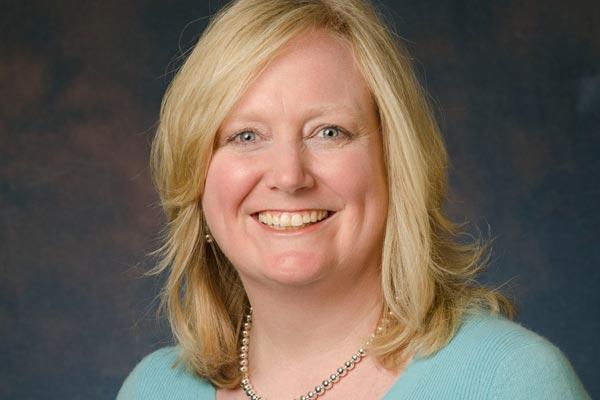Why I Teach
Laura Jones, Ph.D.
Professor, School of Education
The students in my classes are either currently teaching or aspire to teach in PK-12 classrooms. What I find most exciting in my work is that I not only help these professionals become better able to teach their own students how to read and write, I also help them examine how they use literacy in their own lives. I want them to appreciate that becoming literate involves developing not only the knowledge, strategies, and skills needed to read and write effectively, but also an understanding of how to use language to negotiate one’s place in society.
On the first night of my graduate education class Reading Improvement Through Written Expression, I ask my students, “What would you do if you were in charge of the world?” This question is based on the title of a poem written by Judith Viorst (1984). Each semester, in answer to this prompt, the students create original works that make us laugh, sigh, and pause for serious contemplation.
I believe this example gets at the heart of why I love to teach. Through this writing practice a number of transformations take place. Students share their personal and professional hopes, their frustrations, and their goals. These exchanges build the familiarity and trust needed for a successful learning community. As they compose their own “In Charge of the World” poems, they are actively reading and writing as well as monitoring their own reading and writing processes. They begin to see how their literacy practices can be used to imagine possibilities that have never before existed. They can imagine what their world and their K-12 students’ world could be.
